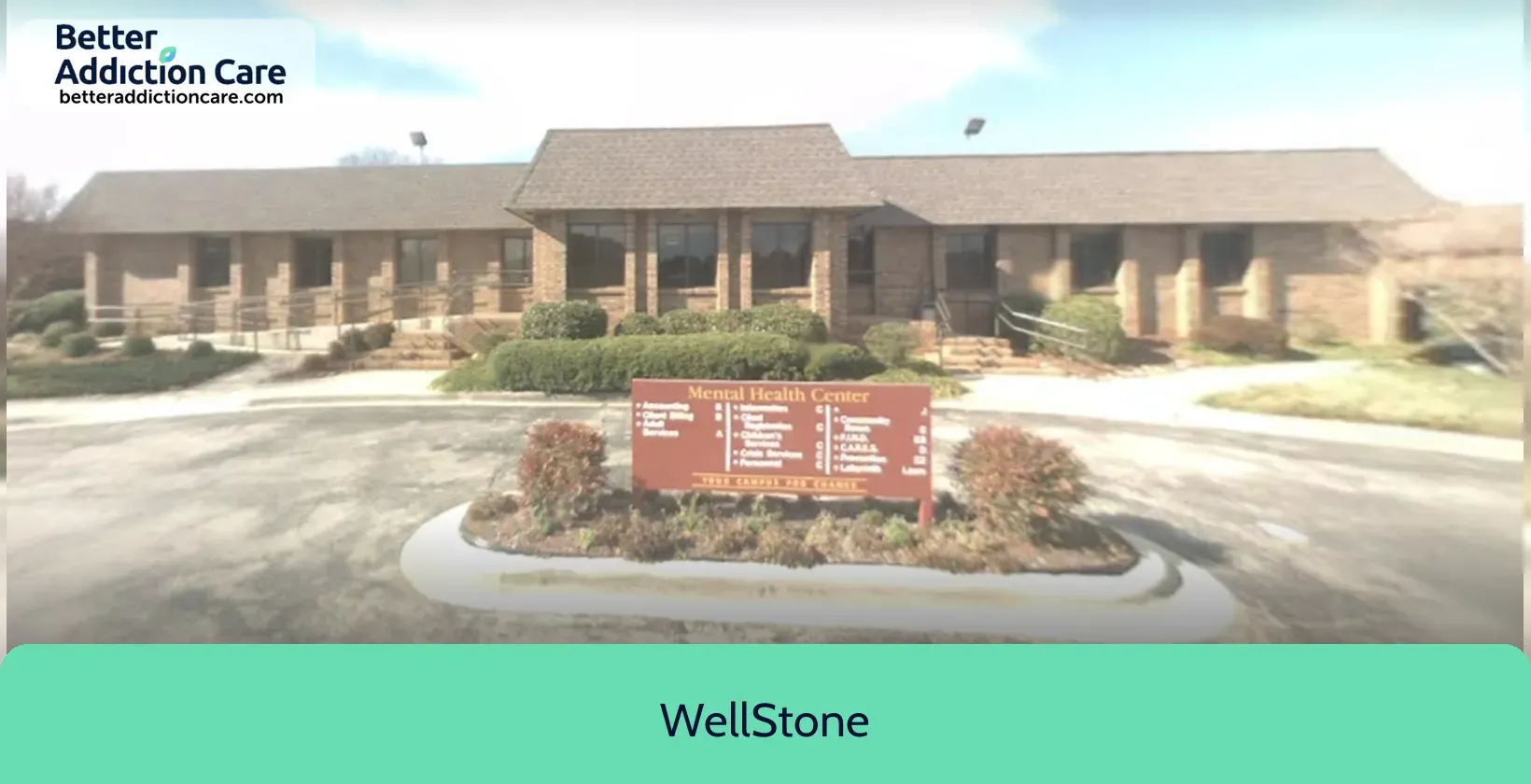WellStone
Overview
WellStone Behavioral Health, located in Huntsville, Alabama, specializes in substance abuse treatment for adults 19 years and older. Committed to providing the necessary support to overcome addiction, WellStone offers personalized care with staff working individually with each client. They accept Medicare, Medicaid, private insurance, and offer a sliding fee scale to ensure accessibility for all individuals, regardless of their ability to pay.
The outpatient substance abuse program at WellStone is designed to address mental health disorders such as substance addiction, depression, and bipolar conditions. Group sessions are held one night per week, with less frequent bi-monthly or monthly sessions available for patients with less severe addictions. For those needing more intensive support, referrals to an inpatient program in Cullman are available. Additionally, specialized programs are offered for teens, ensuring comprehensive care across all age groups.
WellStone encourages individuals to join their aftercare program for ongoing support after completing the initial phase of treatment. This program, aimed at maintaining sobriety, requires participants to meet one night each week, providing a continued support network and resources.
For children and adolescents up to 18 years old, services can be accessed through the Nova Center for Youth & Family. Customer Service Representatives conduct a telephone screening to schedule an assessment with a mental health professional, ensuring tailored support for younger clients.
WellStone Behavioral Health serves all patients, regardless of their ability to pay, offering services at discounted rates through a sliding fee scale based on family size and income. This commitment to accessibility ensures that everyone can receive the care they need.
In addition to substance abuse treatment, WellStone offers various community services, including the Courage for All Campaign, aimed at spreading awareness and fighting the opioid crisis. The campaign provides education and resources to help the community combat opioid-related deaths, which have been rising since 2013.
WellStone also provides Mental Health First Aid, an 8-hour course that teaches participants how to help someone developing a mental health problem or experiencing a mental health crisis. This training helps individuals identify, understand, and respond to signs of addictions and mental illnesses, promoting a more informed and supportive community.
For immediate assistance, WellStone Emergency Services (WES) offers 24/7 crisis intervention services. This emergency care facility provides assessment, referral, and treatment for individuals experiencing mental health and substance use disorder crises, ensuring crisis care access for North Alabama residents.
WellStone Behavioral Health is dedicated to providing life-changing care through comprehensive, individualized treatment programs. Their mission is to support the mental and behavioral health needs of every patient, fostering recovery and well-being for the community they serve.
WellStone at a Glance
Payment Options
- Cash or self-payment
- Medicaid
- Medicare
- State-financed health insurance plan other than Medicaid
- Private health insurance
Assessments
- Screening for tobacco use
- Comprehensive mental health assessment
- Comprehensive substance use assessment
- Interim services for clients
- Outreach to persons in the community
Age Groups
- Adolescents
- Children/adolescents
- Young adults
- Adults
- Seniors
Ancillary Services
- Assertive community treatment
- Intensive case management
- Case management service
- Court-ordered outpatient treatment
- Family psychoeducation
Highlights About WellStone
7.51/10
With an overall rating of 7.51/10, this facility has following balanced range of services. Alcohol Rehabilitation: 8.00/10, Drug Rehab and Detox: 7.85/10, Insurance and Payments: 6.00/10, Treatment Options: 8.18/10.-
Treatment Options 8.18
-
Alcohol Rehabilitation 8.00
-
Drug Rehab and Detox 7.85
-
Insurance and Payments 6.00
Accreditations
State mental health department:
State mental health department accreditation refers to the process of evaluating and certifying the quality and standards of a state's mental health department, ensuring that it provides high-quality services and meets specific criteria for mental health care. The accreditation process is performed by a third-party organization and helps to improve the overall care and treatment of individuals with mental health conditions.
Treatment At WellStone
Treatment Conditions
- Alcoholism
- Mental health treatment
- Substance use treatment
- Co-occurring Disorders
- Opioid Treatement
Care Levels
- Partial Hospitalization Program
- Outpatient
- Outpatient detoxification
- Outpatient methadone/buprenorphine or naltrexone treatment
- Intensive outpatient treatment
Treatment Modalities
- Individual psychotherapy
- Couples/family therapy
- Cognitive behavioral therapy
- Integrated Mental and Substance Use Disorder treatment
- Telemedicine/telehealth therapy
Ancillary Services
Languages
- Sign language services for the deaf and hard of hearing
Additional Services
- Pharmacotherapies administered during treatment
- Mentoring/peer support
- Breathalyzer or blood alcohol testing
Special Programs
- Clients with co-occurring mental and substance use disorders
- Criminal justice (other than DUI/DWI)/Forensic clients
- Children/adolescents with serious emotional disturbance (SED)
- Persons 18 and older with serious mental illness (SMI)
- Persons experiencing first-episode psychosis
Get Help Now
Common Questions About WellStone
Contact Information
Other Facilities in Huntsville

6.99

6.86

6.78
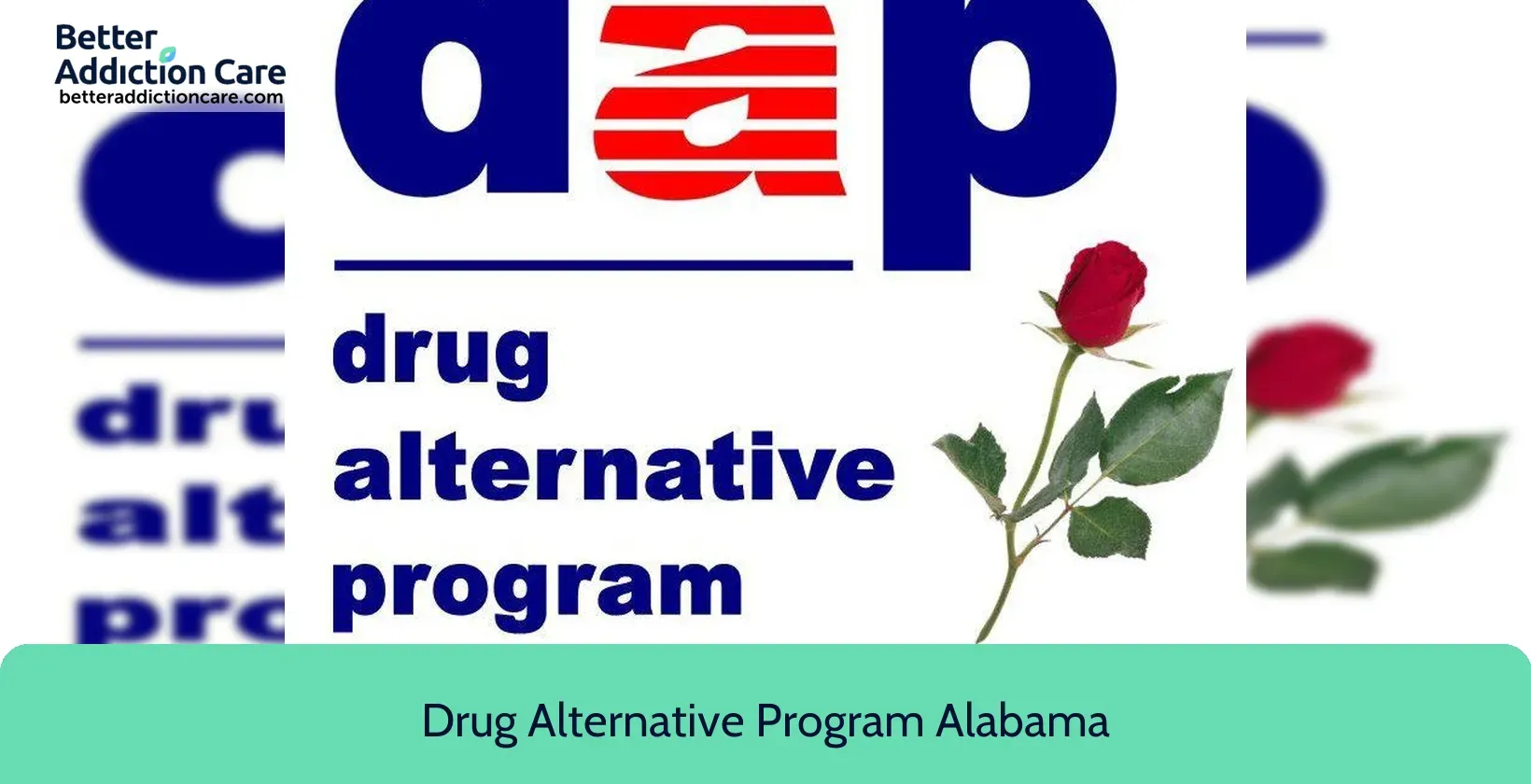
6.77
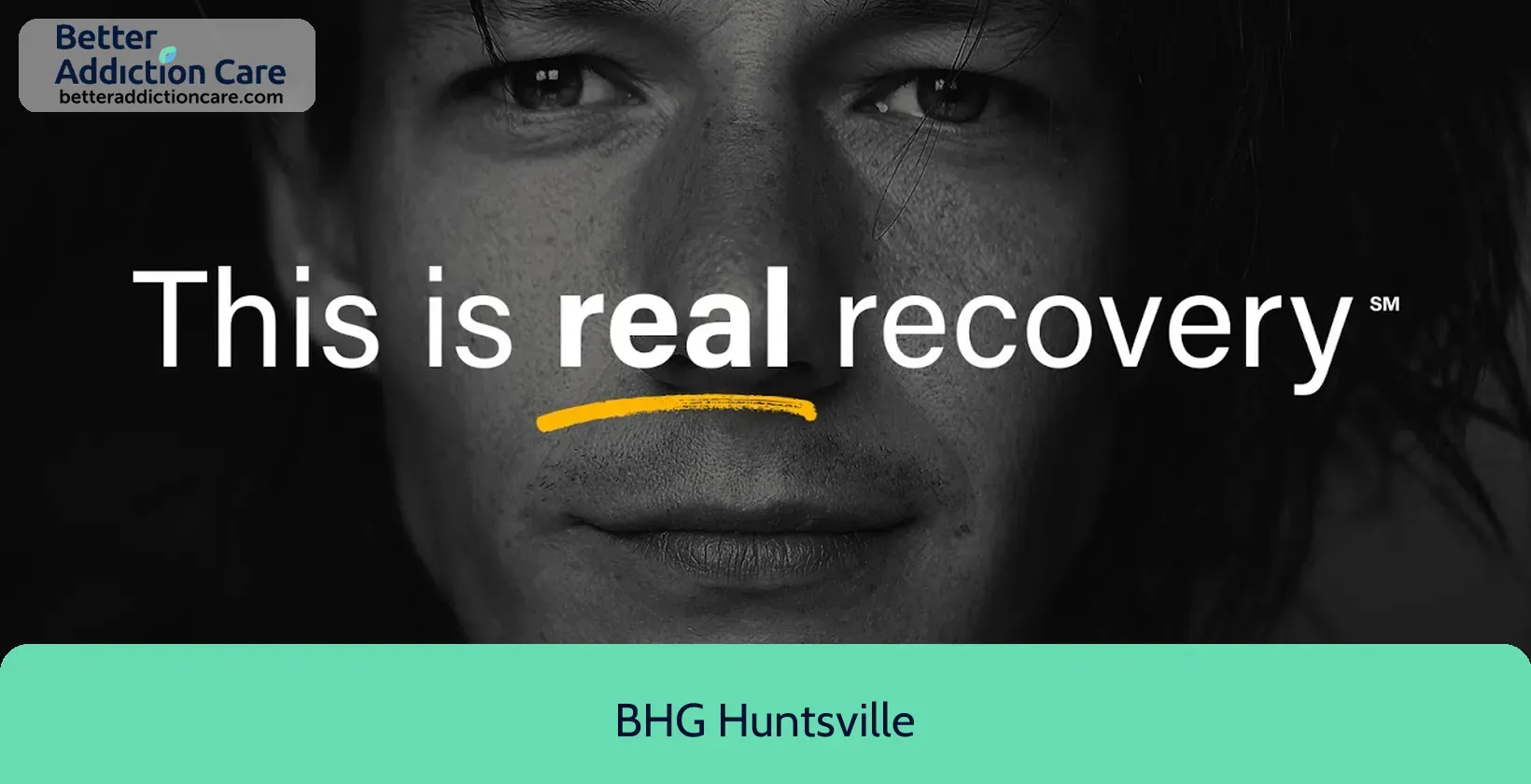
7.30
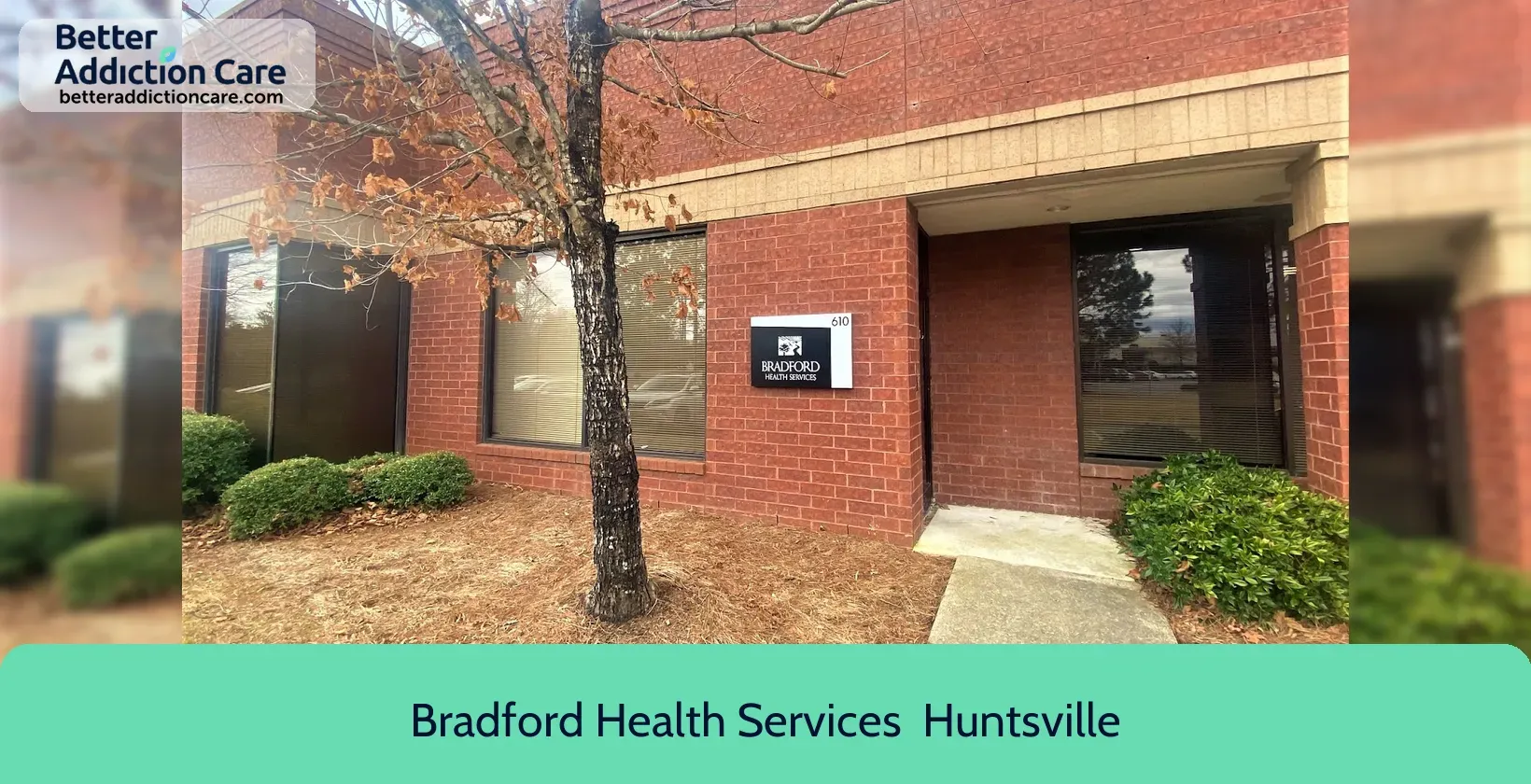
7.45
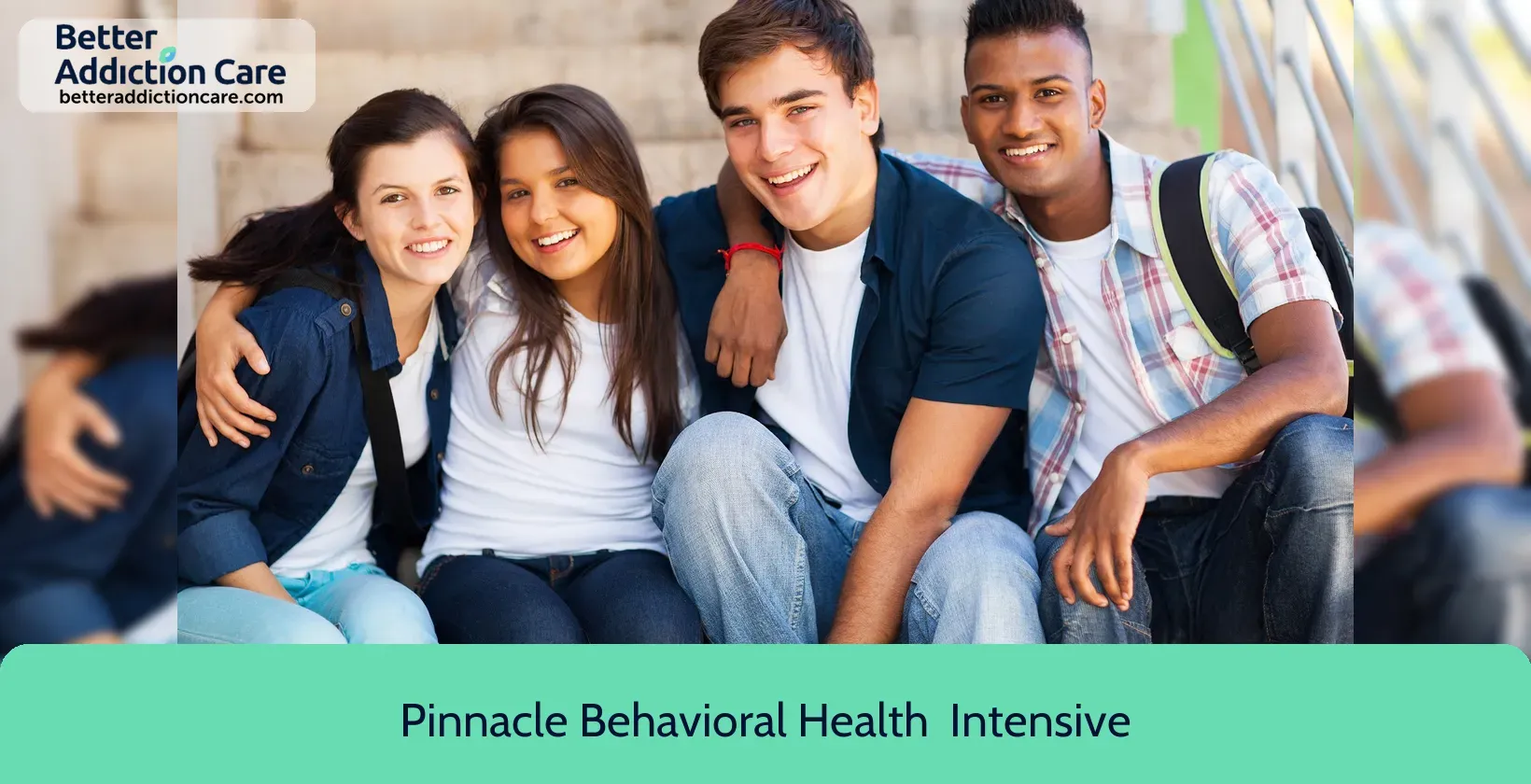
6.65
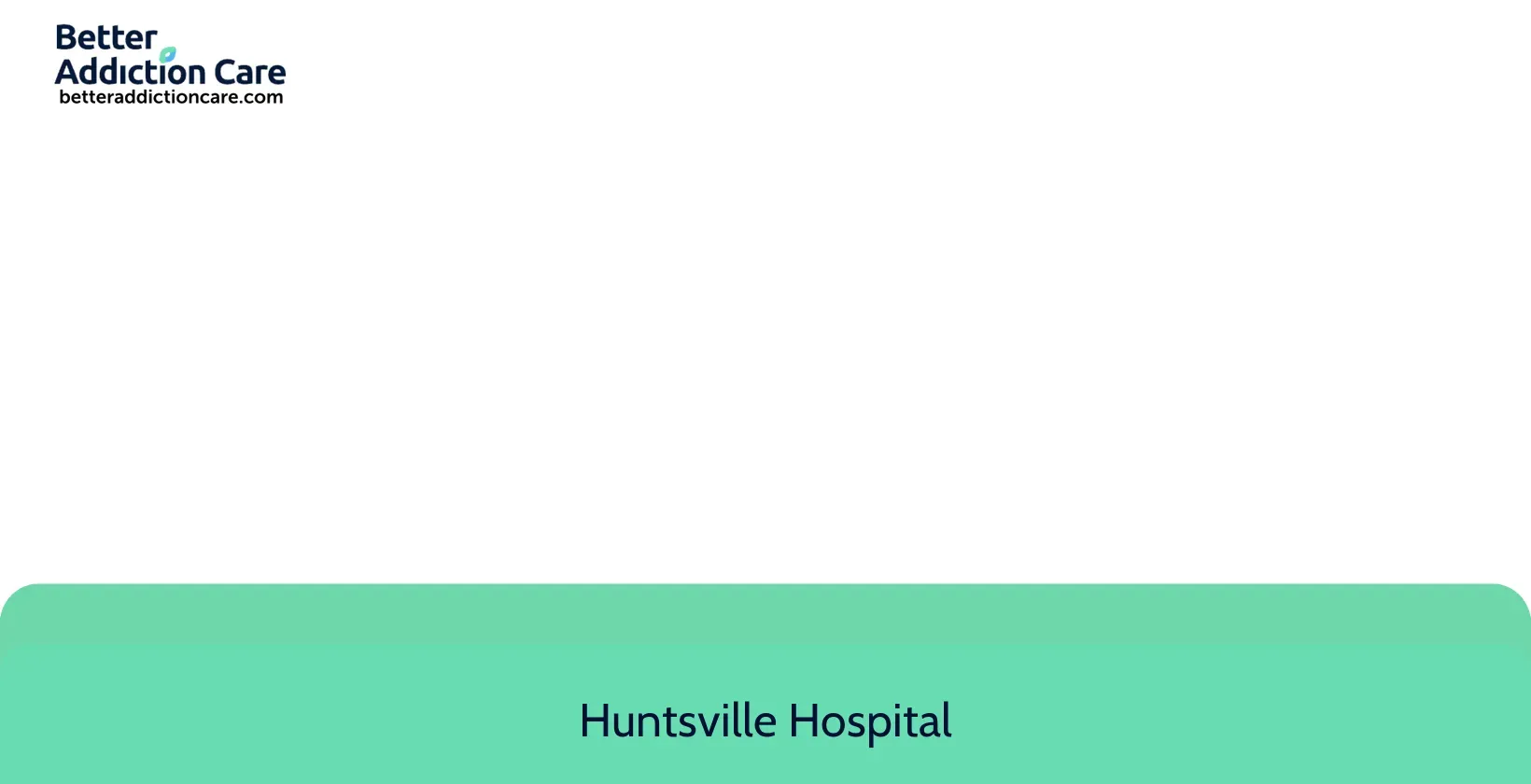
6.59
Browse rehab centers near Huntsville and in other cities across Alabama
DISCLAIMER: The facility name, logo and brand are the property and registered trademarks of Huntsville Hospital, and are being used for identification and informational purposes only. Use of these names, logos and brands shall not imply endorsement. BetterAddictionCare.com is not affiliated with or sponsored by Huntsville Hospital.
